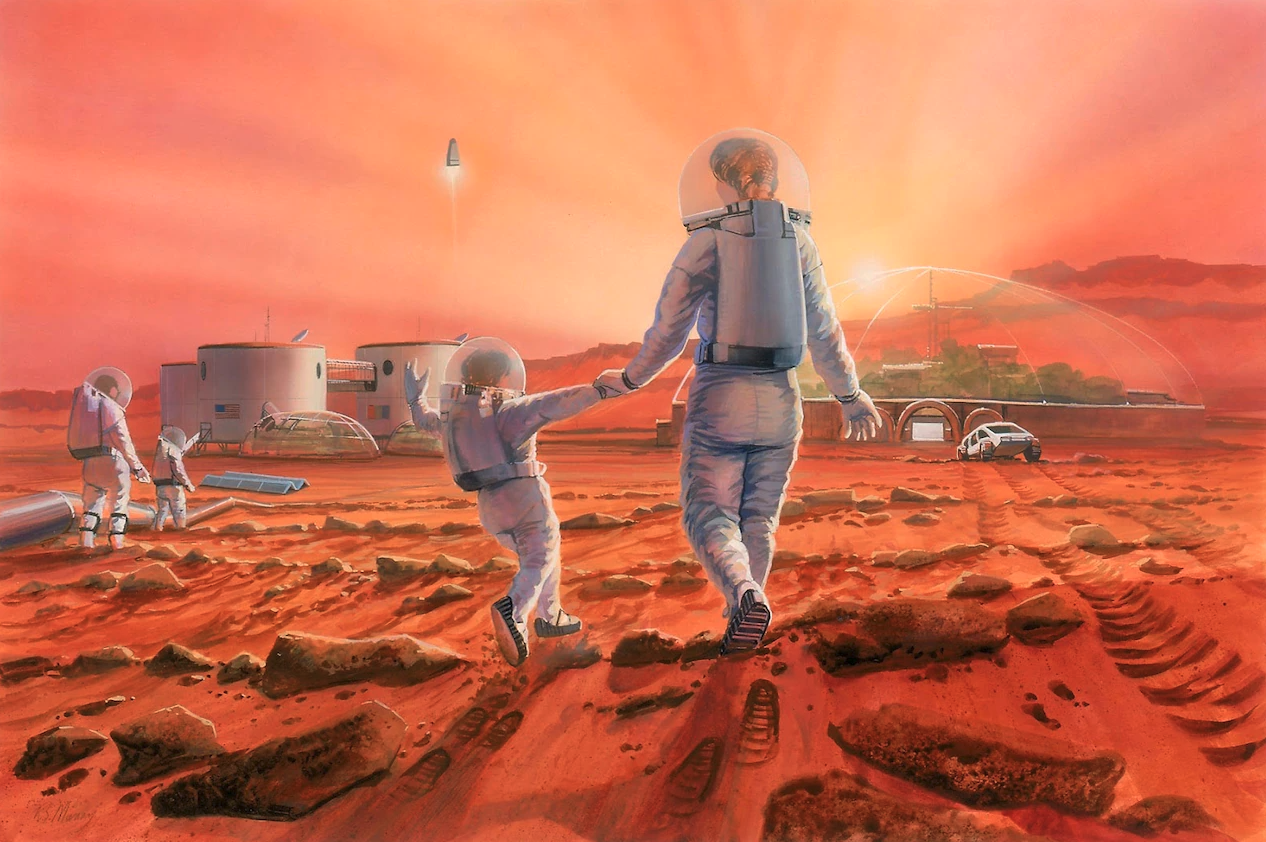
The emergence of intelligent life from an otherwise lifeless planet is an incredibly lucky and beautiful cosmic accident. We don’t know how many other worlds harbor intelligent life, but so far we’re only aware of our own. That makes life on Earth extremely special – we’re the universe peering back upon itself and taking in its complexity and beauty.
We should do everything we can to preserve this unique and special flourishing. For all we know, life could be extremely rare, and there’s some missing term in the Drake equation that makes us the only complex life in our galaxy.
It’s the highest calling of humanity to make sure this intelligent life doesn’t extinguish itself. We need to keep the Earth and human civilization safe, and that means solving climate change as well as preventing nuclear war, extreme social unrest, and a variety of other civilizational collapse scenarios. We need to address poverty, famine, decaying institutions, institutionalized racism, abuses of power, totalitarian regimes, cost disease, ecosystem collapse, emerging threats from abuse of new technologies, and more. We need to do all of these things at the same time.
However, we also need to eventually leave this planet. If we do nothing, the sun will likely bake all life on Earth in about a billion years (not five billion as originally thought), and it’s possible a large meteor or gamma ray burst could wipe us out long before that. It’s substantially more likely that some human-driven event will wipe us out long before any natural event, despite our best efforts to stop that from happening.
As a result of all this, it’s vitally important that humanity develop the skill to explore and build a home on other planets, and that we do so now. It’s part of our overall strategy for survival and flourishing – we need eggs in multiple baskets.
We need to support any efforts that lower the cost of access to space, as that moves us towards our long-term goal of preventing intelligent life from being wiped out. As a result, I’m saddened by the level of hate that’s getting directed at space tourism companies and the current billionaire space race. I instead frame the whole phenomenon as a handful of ultra-wealthy entrepreneurs getting a group of very wealthy customers to crowdsource the development of low cost rocket technology. It's the world's most expensive Kickstarter.
As a side note, apparently going to space creates a profound feeling of awe and connection. It’s so noteworthy that it even has a name – “the overview effect”. One psychology grad student recently decided to interview seven retired astronauts, and he had this to say:
“The analysis revealed that the participants clustered into two groups based on the intensity of the changes they experienced in terms of both attitude and behaviour. It appears that distance made the heart grow fonder – that is to say, the physical separation from “mother Earth” helped them appreciate the beauty of life and created a stronger bond to the planet. … From the vantage point of space, divisions and boundaries could not be seen and were pointless. Earth was seen as a “living bio-sphere” and as a “fragile oasis” harbouring and cocooning life in unlikely circumstances in the void of space.”
Would getting a group of very wealthy people to experience this make the world a better place? Possibly. Maybe in a couple of years someone will do a study comparing the charity activities of people before and after they go to space.
Space tourism also helps put space back in the cultural zeitgeist. I grew up in the 1990s, and space was Definitely Not Cool back then, just the tired costly behemoth of the space shuttle launching over and over, and a few people on the fringe proposing new low-cost ways into space. As a kid I read old nonfiction books written in the 1970s about then-future plans for human space exploration, and their ambition was boundless and inspirational – Moon colonies by the 1980s, crewed missions to Mars and beyond by the 1990s, giant tubular rotating space stations holding thousands of people, space elevators, and many other wonders that seemed like reasonable projections forward from the Apollo program from the perspective of someone alive in 1970.
Space is finally exciting again, thanks to innovation and hard work at SpaceX, NASA, Scaled Composites, Blue Origin, and many other places.
If you want to criticize Jeff Bezos, by all means point out that workers at Amazon warehouses suffer twice the rate of workplace injuries as workers in similar warehouses run by other companies, or that he just spent half a billion dollars on a personal pleasure boat instead of more worthy pursuits, or that he doesn't spend much on charitable causes in general, or that he strong-arms the US government after it awards contracts to his rivals, or that Amazon is doing a poor job of screening out counterfeit goods and the site is inundated with fly-by-night brands with garbage products and astroturfed reviews, or that the engines Blue Origin is building for NASA’s Artemis moon mission are way behind schedule. But don’t attack him for actually trying to do a very hard thing that will help humanity spread beyond Earth and hopefully live on and continue to thrive and wonder at the universe for eons to come.
